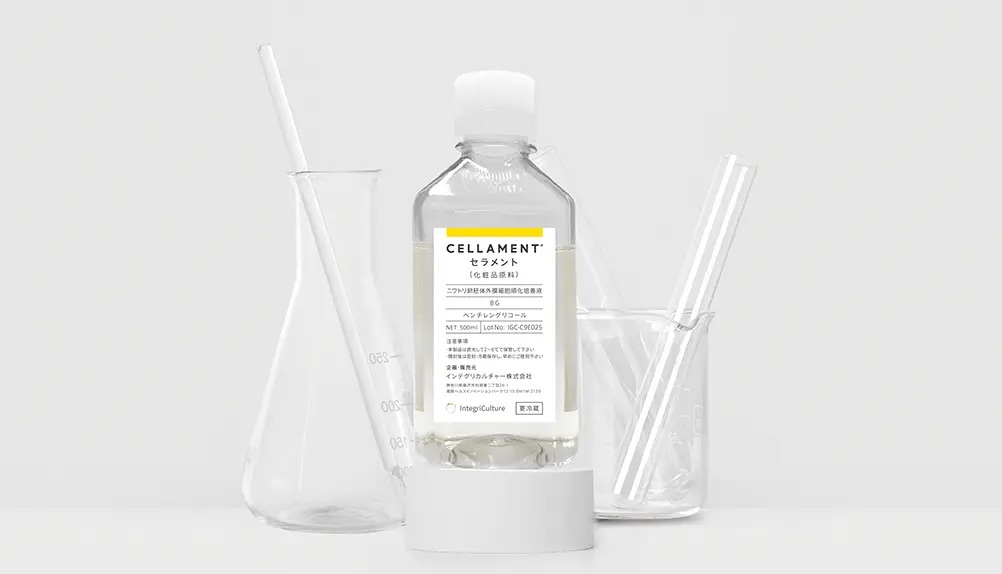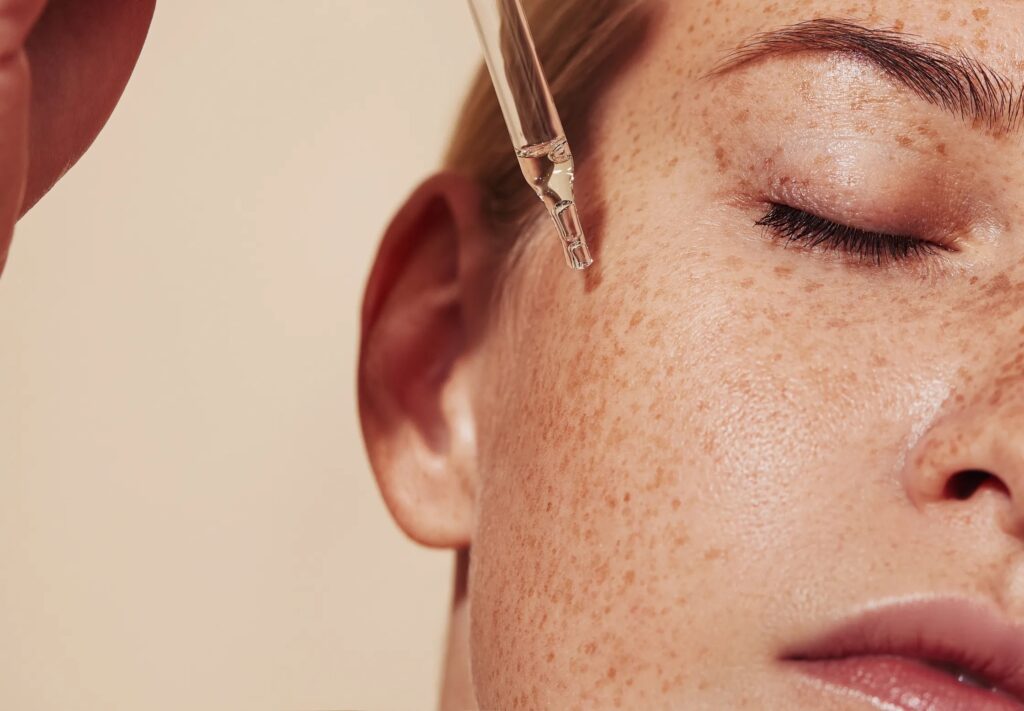Japan’s IntegriCulture and Singapore’s Umami Bioworks have joined forces to leverage their cellular agriculture expertise and develop novel cosmetics from cultured fish cells.
Ahead of Japan’s inaugural Cellular Agriculture Week, one of its industry pioneers has notched a key partnership to innovate in the future-friendly cosmetics space.
Tokyo-based IntegriCulture, Japan’s first cultivated meat firm, has signed a memorandum of understanding with Singaporean cultured seafood pioneer Umami Bioworks. Together, the two Asian biotech startups will develop beauty and skincare products using cultured fish cells, as part of Umami Bioworks’s newly unveiled Marine Radiance line of cell-cultured bioactives.
“Umami has partnered with Integriculture as our first launch partner in Japan for our Marine Radiance portfolio of cosmetics ingredients,” Umami Bioworks founder and CEO Mihir Pershad told Green Queen.
“Integriculture has already established relationships with many cosmetics brands within Japan through sales of its own ingredients, and we believe they can help us to more quickly find the best paths to commercialising our ingredients,” he added.
“Further, together we can collectively build the market understanding of cultivated cosmetics ingredients, creating greater opportunity for both companies going forward.”
Future-facing skincare with egg and fish cells

The strategic collaboration combines IntegriCulture’s Cellament ingredient (derived from egg cells) with Umami Bioworks’s core AI platform, Alkemyst.
Launched in 2021, Cellament is a cell-cultured serum said to be “rich in nourishing proteins and rejuvenating growth factors” to revitalise the skin at the cellular level. It’s made by the selective cultivation of egg cells, such as the amnion, yolk sac, and plasma membrane, which amplify the potency of the nutritional elements in chicken eggs.
IntegriCulture’s skincare ingredient can reduce the enzymatic activity that degrades skin elasticity by 10-70%, as well as accelerate skin cell turnover, which increases smoothness and helps prevent wrinkling. The ingredient is also linked to an increase in moisture retention of keratinocytes, cells that make up 90% of the skin’s outermost layer.
Moreover, Cellament targets free radicals, which can speed up signs of ageing, while the egg proteins reduce the presence of inflammatory cytokines, which cause redness.
Umami Bioworks’s Alkemyst toolkit uses machine learning, computational biology, and digital twin technology to deliver a faster, more precise R&D approach to growing and optimising the production of any marine species via cellular agriculture.
The platform analyses data, identifies patterns and optimises R&D and scale-up parameters across areas like cell line selection, media development, and process controls. The digital twin tech allows it to simulate and predict outcomes, reducing the amount of screening and scale-up experiments needed and thus saving both time and resources.
According to Umami Bioworks, Alkemyst also enables it to transfer learnings from one species to another, improving the efficiency with which it can develop new products.
The two companies are now combining their core competencies to co-develop novel cosmetics that are “fundamentally different” from conventional products, with plans to launch a line of fish-cell-derived innovations in the future.
Responding to consumer beauty trends

The Marine Radiance range is designed for personal care and nutraceutical products and seeks to address the supply chain instability, ethical concerns, and quality variability that limit access to high-efficacy marine ingredients by offering market-ready solutions that offer consistent, scalable, and traceable supply.
Its first offering under the range is animal-free polydeoxyribonucleotide (PDRN), a compound traditionally extracted from salmon sperm and known for its anti-inflammatory and wound-healing properties. It can synthesise collagen and reduce hyperpigmentation, and is becoming increasingly popular in skincare, wound healing, and regenerative medicine.
“Umami decided to enter the cosmetics sector after discovering that our cells generated co-products that had strong cosmetics activity (anti-ageing, antioxidant, etc),” explained Pershad. “We conducted intensive discovery conversations with a range of cosmetics brands and ingredients companies, and were surprised by how many immediately asked when they could get samples and how much volume we could produce.
“This strong market pull convinced us that cultivated cosmetics ingredients could serve a real market need, which we could supply from co-products of our cultivation process.”
These launches come amid heightened consumer demand for eco-friendly and ethical beauty. Last year, searches for ‘sustainable beauty’ were up by 200% since 2019, and 80% of global consumers are willing to pay more for sustainable goods.
Meanwhile, clean beauty is important to 93% of people. In Asia-Pacific, half of consumers say their purchasing decisions for cosmetics are influenced by their sustainability and social responsibility impact. The region is also the fastest-growing cruelty-free beauty market.
It’s why another Asian cell ag firm, Avant, has developed a cell-cultured peptide complex, ZelluGen, using its Zellulin BioPlatform.
Both IntegriCulture and Umami Bioworks are simultaneously working to advance their food applications too. The former unveiled several prototype cultivated duck dishes and products this spring (including foie gras). The latter, meanwhile, is working with global seafood and food CPG companies to commercialise cultured Japanese eel and bluefin tuna, and is also in the early stages of developing a white fish.
“Our eel programme is the most advanced, with regulatory filings made in several key markets and production running at pilot scale. We are planning multiple product launch campaigns with our partners and will share more on those campaigns in the near future,” product manager Gayathri Mani told Green Queen last week.
The post Asian Startups Team Up to Create Cosmetics from Cultivated Fish Cells appeared first on Green Queen.
This post was originally published on Green Queen.